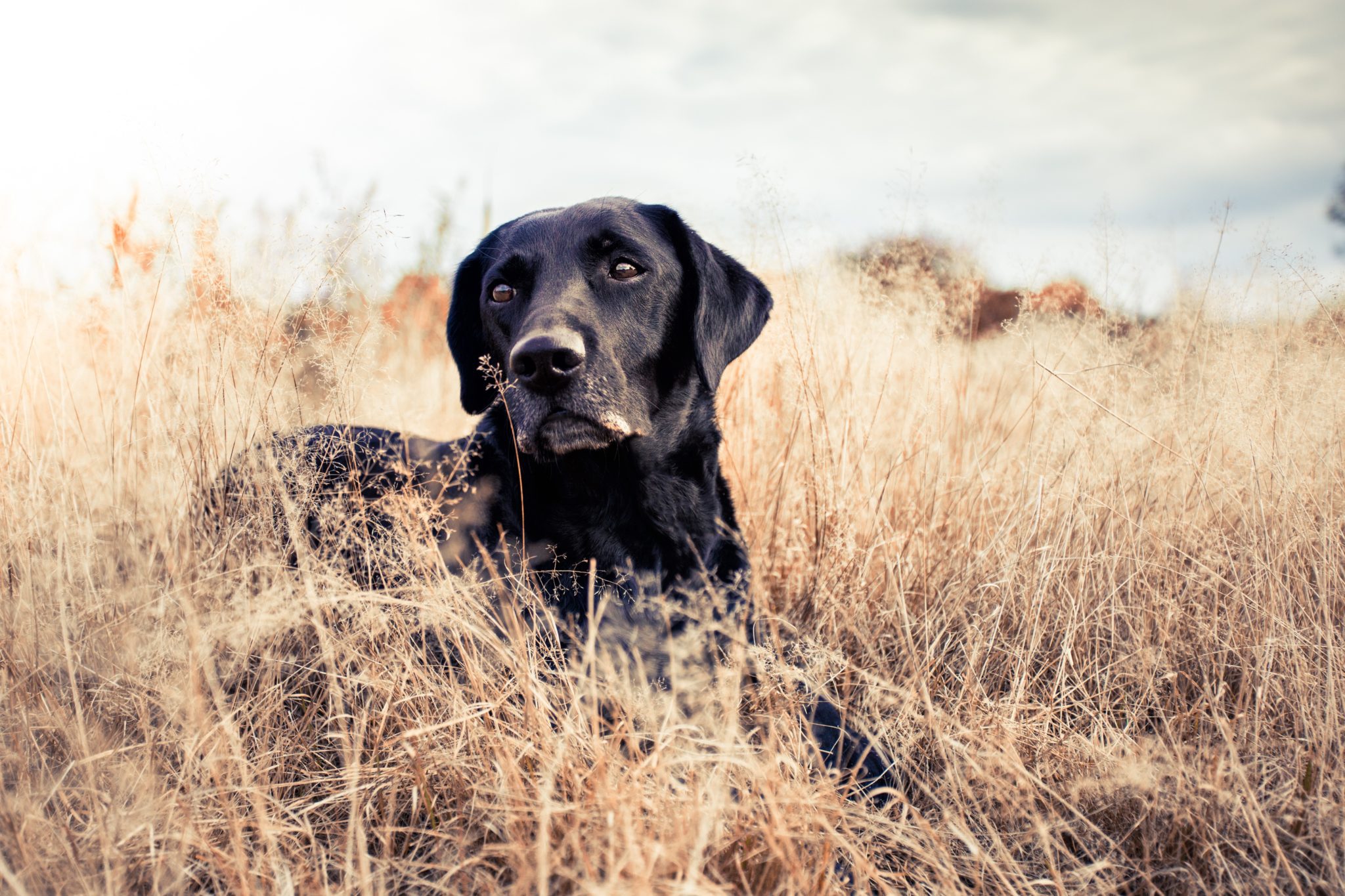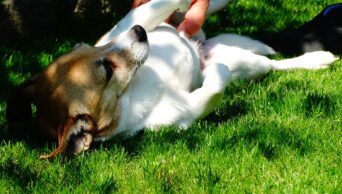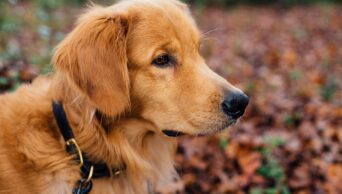Essential Guide to Caring for Older Dogs
Dog Health , +2
January 12, 2016

Make sure your senior dog is as happy and healthy as can be.
There comes a day when every dog owner looks at their canine companion and realises that they’re getting on a bit. This happens sooner for some breeds than others, but in general over seven years old is considered senior. Living with a senior dog is a privilege – your four-legged friend will be calm, content and as good a companion as ever. There are several things you can do to make your dog’s senior years as happy and healthy as possible – what an honour!
Diet
If your dog is still active and doesn’t seem to be showing signs of putting on weight, the chances are you can leave them on their current food and not have to make any changes. However, if they are suffering from excess weight can, you could look at trying our Field & Trial Light & Senior which is perfect for older dogs needing to manage their weight, containing enhanced levels of Glucosamine and Chrondroitin help look after the joints of your older friend. If joint pain is the main effect of old age on your dog, you could look at trying them on either our Field & Trial Maintenance Plus or Field & Trial Turkey & Rice (suitable for those with sensitivities). These both contain Joint Aid which can help with dogs suffering from joint pain and discomfort.
Check-ups
Senior dogs should visit the vets for a checkup at least once a year for a full health MOT and more frequently if they have existing health conditions. It’s important to pick up any changes in your pet’s appearance or behaviour quickly, such as lethargy or excessive drinking, and to tell your vet, as these may be signs of underlying health problems. The faster any problems are detected the sooner they can be treated and can give your dog a better quality of life.
Overeating
Obesity is common amongst senior dogs – the dreaded middle age spread isn’t reserved just for us humans! It’s important you don’t overfeed your senior dog and allow them to become overweight as they may develop health problems as a result of the extra weight and might not live as long. It’s important that you feed your dog the correct amount of food for its type, size and age.
Exercise
Exercise is the other way you can help to keep your senior dog in good shape and it’s important for their mental well-being too – being outside is an essential sensory experience for our four-legged friends. How much exercise your senior dog needs will depend on their exact age, size, breed and general health. Many dog owners are able to instinctively know how much exercise their dog needs now it’s getting older. If you aren’t sure, ask your vet – they’ll be happy to help.
Play is also important for senior dogs – as well as helping them stay active, toys and puzzles help keep them occupied and mentally stimulated.
Grooming
Good grooming is essential for keeping older dogs looking and feeling great. Brushing often will help to stimulate the production of natural oils and prevent your dog’s coat and skin drying out. When bathing your dog it’s best to use a dog shampoo specifically for seniors so you don’t remove the oils they have left. Don’t forget to check your dog for ticks and fleas and keep up to date with your flea treatments (as well as worming and booster vaccinations).
Dental
It’s important that you care for your dog’s teeth and brush them regularly – especially as gum disease is common in older dogs and can lead to much more serious problems. Ask your vet to check their teeth and gums when you visit for your checkup. Equally, as our dogs get older it’s more important than ever to keep an eye on their nails. As senior dogs are generally less active they can quickly become too long and painful for your dog.
Bedding
Of course you’ll want to provide your dog with a comfortable retirement! Make sure you provide your aging dog with a thick, soft and comfy bed with some blankets, that’s in their own warm and quiet corner. Your dog will really appreciate having his or her own haven to retreat to and rest in comfort.
Bathroom
Don’t leave your senior dog home alone without access to your garden for long periods of time – they’ll need to use the toilet more frequently than they did previously. Toilet accidents can happen and aren’t your dog’s fault – it’s just part of the aging process – be prepared and most importantly, be kind! Senior dogs will feel much more secure if you stick to a daily routine for meals and bedtimes, so everything is straightforward with toilet time – you’ll find senior dogs generally go at the same time everyday.
Love
Lastly, don’t underestimate the importance of showing your aging dog all the love you lavished on them as a puppy – older dogs appreciate your affection and companionship so much more!
Has your dog reached its senior years? Have you adopted an older dog? We’d love to hear your stories.


